
Gibson, Dunn & Crutcher faced a strategic crisis in late 2010: The elite law firm’s Dallas office had struggled to grow beyond 30 lawyers since the firm opened the outpost in 1984. Firm leaders had serious doubts about the viability of its Texas operation. Shuttering the office was a real possibility.
And then, the Texas law gods smiled upon the elite Los Angeles-founded corporate law firm.
Five Dallas lawyers — then-Energy Future Holdings General Counsel Rob Walters and Vinson & Elkins partners Jeff Chapman, Bill Dawson, Mike Raiff and Rob Little — were reconsidering their futures and fielding inquiries from big national law firms such as Davis Polk, Latham & Watkins and Weil, Gotshal & Manges.
“We believed there was an opportunity to focus on high-end litigation and high-end corporate transactions that would justify a higher rate schedule,” Walters told The Texas Lawbook, noting that hourly rates for Texas-based lawyers were about 20 percent below national law firm rates in 2011. “Latham had broken through in Houston, and we believed the same could happen in Dallas.”
On Feb. 11, 2011, the five lawyers — three litigators and two deal lawyers — joined Gibson Dunn’s Dallas office to take lawyer headcount to 33 lawyers. Within months, more lawyers joined, including U.S. Trade Ambassador Ron Kirk.
In the dozen years since, Gibson Dunn has sextupled the number of lawyers it has in Texas and increased revenues from those Texas attorneys by 10 times. It opened a Houston office in 2017 and has been eyeing Austin for possible expansion.
The firm’s Texas lawyers have been involved in some of the biggest litigation matters in the U.S. — defending AT&T, Apple, Keurig Dr Pepper and Meta/Facebook in landmark lawsuits. Raiff and appellate partner Allyson Ho are lead lawyers representing power generator Luminant in the multibillion litigation related to Winter Storm Uri.
Gibson Dunn transactional lawyers in Houston and Dallas were the lead legal advisors on 115 M&A deals in 2022 and 2023 with a combined deal value of $166 billion. Firm partners Chapman and Tull Florey represented Pioneer Natural Resources in its $64.5 billion sale to Exxon Mobil — the largest corporate transaction in the world in 2023.
During the past two years, the firm has been on a Texas-sized hiring spree — growing from 117 attorneys to 179. This year, the firm is expecting its largest class of Texas summer associates and its largest class of first-year hires.
“With the first-year associates joining this fall, we will exceed 200 lawyers,” said Trey Cox, who is co-partner in charge of Gibson Dunn’s Dallas office and is representing Meta/Facebook in its upcoming privacy trial against the state of Texas over facial recognition technology. “We want to be bigger, and we are definitely not done growing.”
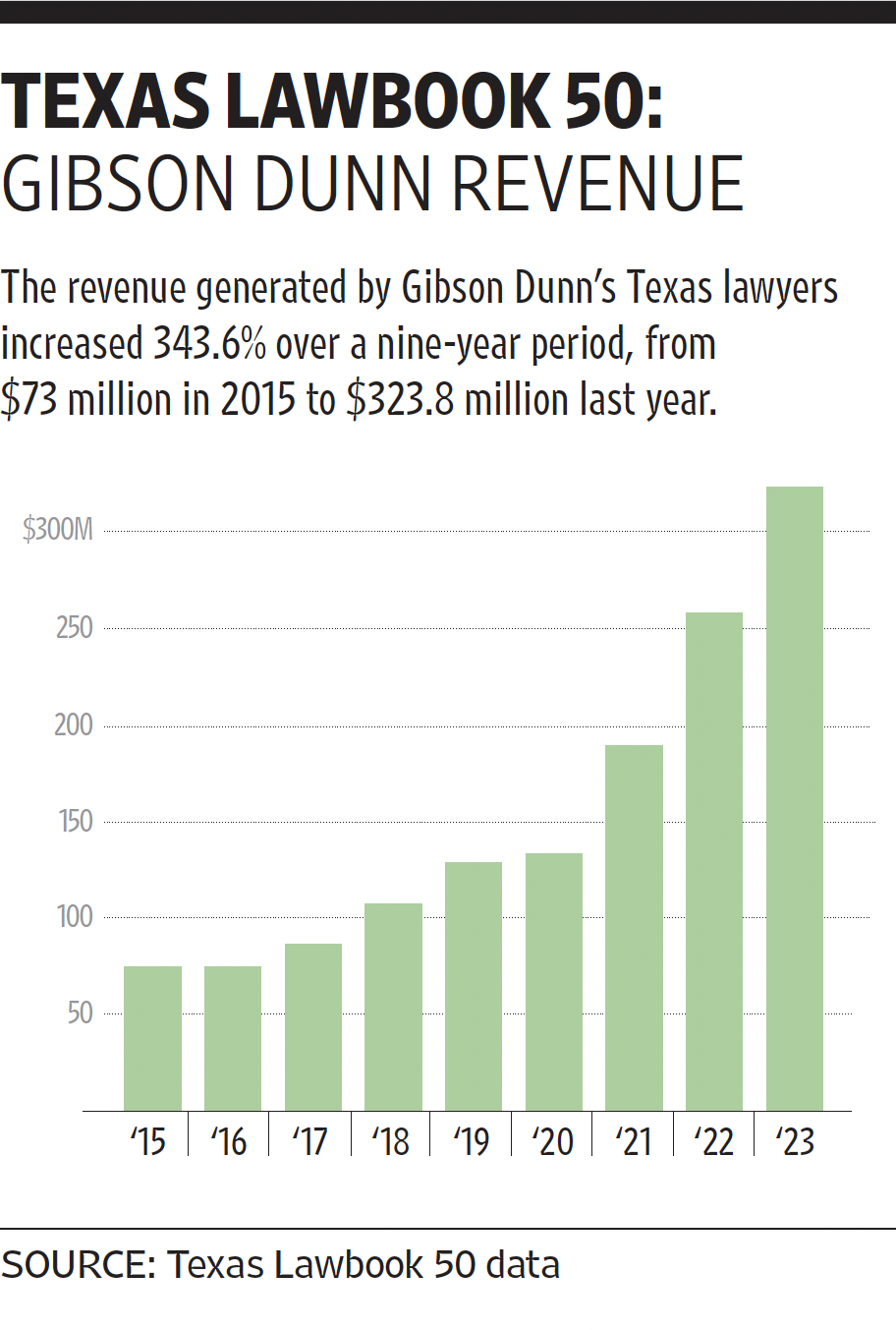
“We had a very good 2023,” Cox said. “We had pretty good years in 2021 and 2022, too.”
That is an understatement.
Gibson Dunn’s Texas lawyers grew revenues 25.6 percent in 2023 — from $257.7 million in 2022 to $323.8 million, according to new Texas Lawbook 50 data.
The firm has nearly tripled its Texas revenue since 2020 — up from $129 million in 2020. Gibson Dunn has gone from 18th on the Texas Lawbook 50 revenue rankings to ninth in 2023.
“We have a Texas strategy that has been successful,” said Hillary Holmes, co-partner in charge of the firm’s Houston office. “Demand is in excess of supply. We are seeing lots of public company deal work. There’s lots of consolidation in the energy industry and a high level of activity in private equity. Our funds practice and finance folks are going gangbusters.”
New Texas Lawbook 50 data shows that Gibson Dunn’s revenue per lawyer in Texas exceeded $1.8 million — about eight percent higher than the elite firm reported globally. Profits per partner in Texas topped $6 million — behind only Kirkland & Ellis and Susman Godfrey.
Firmwide, Gibson Dunn reported 1,835 lawyers across 21 offices globally with total revenues exceeding $3 billion, which ranks it seventh on the American Lawyer top 100.
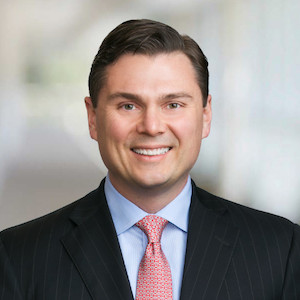
“We are growing because of client demand,” said Collin Cox, who is also co-partner in charge of the firm’s Houston office. “We are well into the second quarter of 2024, and we are busier than ever. We are already having a great year.”
Trey Cox and Collin Cox are not related — “I claim that we are related, but Trey assures the world we are not,” Collin Cox joked — though Gibson Dunn leaders frequently refer to them as the Cox Brothers.
2010-11: In the Beginning
In 2010, the year before Walters, Chapman and crew joined the firm’s Dallas office, Gibson Dunn generated an estimated $32 million in revenues from its Texas attorneys.
“Rob and I were hooked at the hip at the time,” said Chapman. “We saw Gibson Dunn as a remarkable opportunity to do something special.”
Trial lawyers Bill Dawson and Mike Raiff and deal lawyer Rob Little rounded out the V&E group who joined Gibson Dunn right away. Antitrust litigators Veronica Lewis and Brian Robison were added a few months later, followed by life sciences patent law expert Tracey Davies in 2012.
Raiff has been the lead lawyer for Luminant in the massive Winter Storm Uri litigation that is now in its third year. Trey Cox, who was recently named the firm’s global co-chair of litigation, is representing Meta/Facebook in its privacy litigation with the state of Texas over facial recognition technology.
“We’ve added high-profile partners, including Fifth Circuit Appeals Judge Gregg Costa and Exxon Mobil senior counsel David Woodcock, giving our Texas team even more fire power. And clients recognize our expertise,” Collin Cox said.
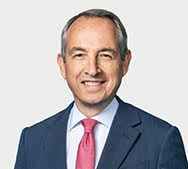
Led by Chapman, the Texas corporate transactions team for Gibson Dunn has led or co-led more than three-dozen billion-dollar-plus mergers, acquisitions, joint ventures and securities offerings.
In 2012, Gibson Dunn’s Chapman represented MetroPCS in its $32 billion sale to T-Mobile, which was one of the year’s biggest deals. A year later, Little advised MidAmerican Energy in its $10 billion purchase of NV Energy. And in 2014, Chapman led Lone Star Funds in its $1.3 billion acquisition of DFC Global and its $7.6 billion purchase of 41,000 apartment units from Home Properties in 2015.
One associate’s name popped up over and over on many of the transactions: Krista Hanvey, who was a second-year lawyer when Chapman and crew arrived in 2011. Two years ago, Gibson Dunn named Hanvey as co-partner in charge of the firm’s Dallas office with Cox.
By 2016, the firm’s Dallas office had grown to 50 lawyers with revenues of $74 million.
2017: A Landmark Year
“We knew we wanted to expand to Houston, and we tried for a few years before we attracted the right group,” Chapman said. “Houston is more competitive for the top tier of corporate lawyers. There are more elite-tier law firms in Houston than Dallas.”
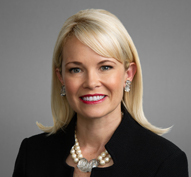
Gibson Dunn announced in April 2017 that Baker Botts transactional partners Tull Florey, James Chenoweth, Gerry Spedale, Doug Rayburn, Shalla Prichard and Holmes had joined the firm to launch its Houston office. Former Latham partner Michael Darden was hired to lead the group.
In November 2017, AT&T hired Walters and Gibson Dunn in its antitrust battle with the Justice Department over the Time Warner merger. A month later, the U.S. Senate confirmed Gibson Dunn appellate partner James Ho, who had been in the firm’s Dallas office since 2010, to the U.S. Court of Appeals for the Fifth Circuit. Only a month earlier, Ho had successfully represented Trinity Industries in convincing the Fifth Circuit to reverse a $663 million judgment in a False Claims Act case in the Eastern District of Texas.
In June 2018, Gibson Dunn replaced Judge Ho with Morgan Lewis appellate partner Allyson Ho — unlike the Cox Brothers, they share more than a name as husband and wife.
While Judge Ho clerked for Justice Clarence Thomas, Allyson Ho clerked for Justice Sandra Day O’Connor. Earlier this year, Allyson Ho hit the trifecta, arguing cases before the U.S. Supreme Court, the Texas Supreme Court and a Fifth Circuit en banc court.
Gibson Dunn currently has four former U.S. Supreme Court clerks and 22 former federal appellate court clerks practicing in its Texas offices.
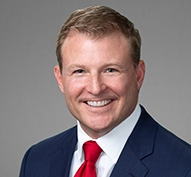
In 2020, Trey Cox left Lynn Pinker Cox & Hurst to join Gibson Dunn for the larger litigation platform.
“I had just finished the Purdue pharma litigation over opioids, and I considered where would I have a better chance of getting that kind of large national litigation,” Cox said. “I chose Gibson Dunn, and it has been everything that I wanted it to be and more to expand my practice and to serve my clients.”
With Walters recently taking semi-retired status and Chapman agreeing that he is in his later years, the duo have “stocked the pond” at Gibson Dunn with a group of partners still in their 40s or early 50s.
“Rob and I did a nice job of building this,” Chapman said. “But the amazing thing is the young talent now taking over leadership for us, including Trey and Hillary, are going to take it to the next level.”
“When I started, we had seven lawyers in Houston,” Holmes said. “Now we have 90.”
Gibson Dunn has added some high-profile lateral partners during the past 18 months, including retired judge Gregg Costa from the U.S. Court of Appeals for the Fifth Circuit, energy transactions partner Mike Piazza from Willkie Farr, former ExxonMobil assistant general counsel David Woodcock, former Simpson Thacher corporate funds partner James Hays, former Akin Gump climate change and corporate governance partner Cynthia Mabry and oil and gas transactions partner Rahul Vashi from Kirkland & Ellis.
“Every partner we added is a strategic fit,” Holmes said in a 2022 interview. “They must be a team player. We’ve turned down several people who had a good book of business, but they were not a good strategy or cultural fit.”
Holmes, who was involved in 18 M&A deals and 15 CapM transactions in 2023, said Texas corporate clients like lawyers who are local.
“It is very powerful to be available to meet in person when a client needs you,” Holmes said. “Nothing takes the place of a good handshake or a meeting over lunch.”
AT&T General Counsel David McAtee said a key reason he hired Walters and Gibson Dunn to help the telecom giant defeat the Trump administration’s lawsuit to stop AT&T $85 billion acquisition of Time Warner Media was that he knew them personally and professionally.
“First, Rob and Gibson Dunn are great at antitrust — they are bet-the-company lawyers,” McAtee told The Texas Lawbook in 2018. “We hire lawyers all over the world, but there is nothing that compares to being able to sit across the table, look our lawyers in the eyes and discuss strategy. I always like having a lawyer I can just call and ask to come over for a visit.”
Collin Cox said that while lawyers can represent clients in distance locations due to technology, nothing replaces being local and in-person.
“Clients want their lawyers to be involved in the community,” Cox said.
